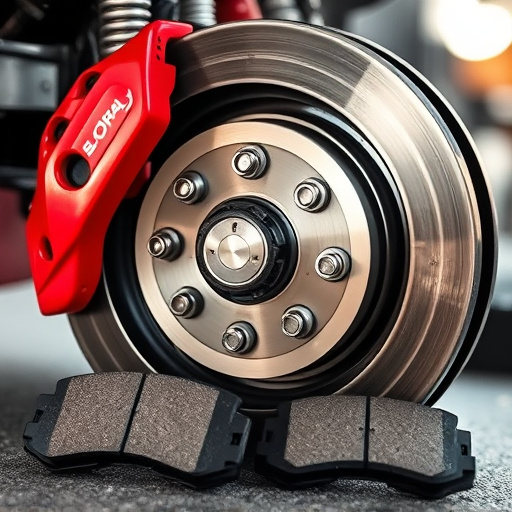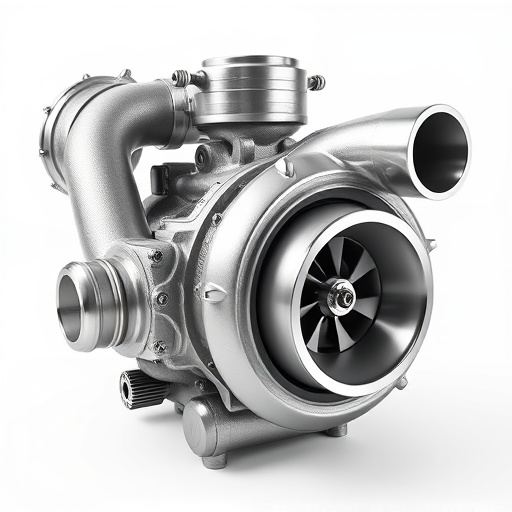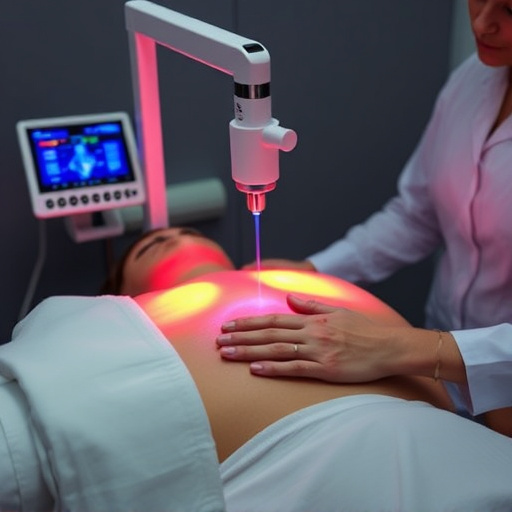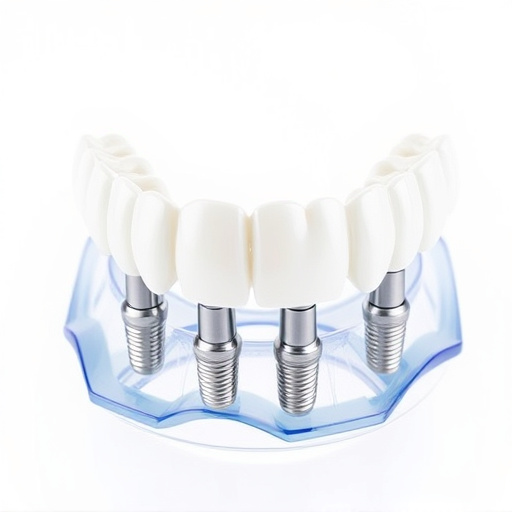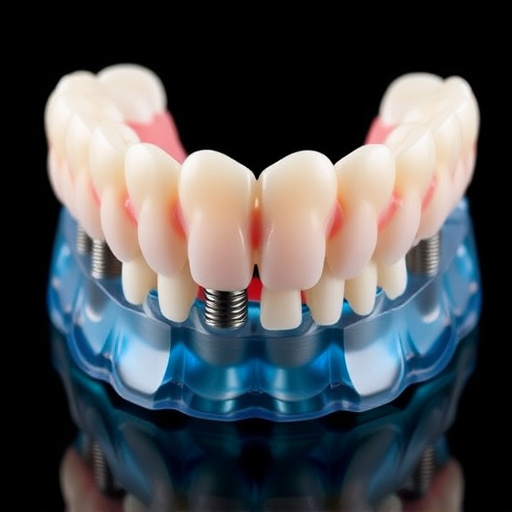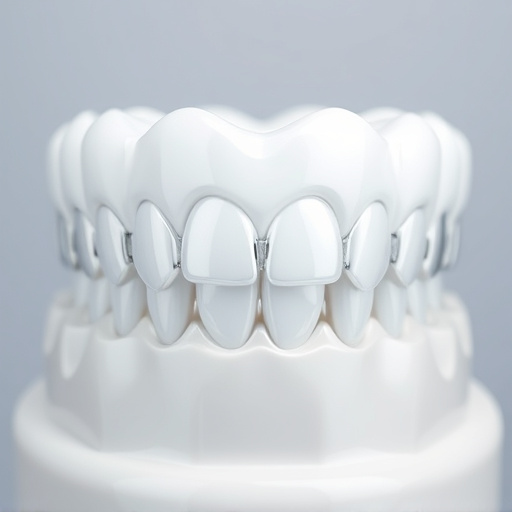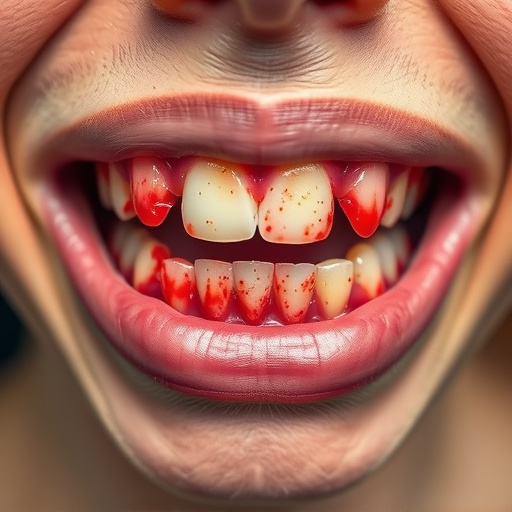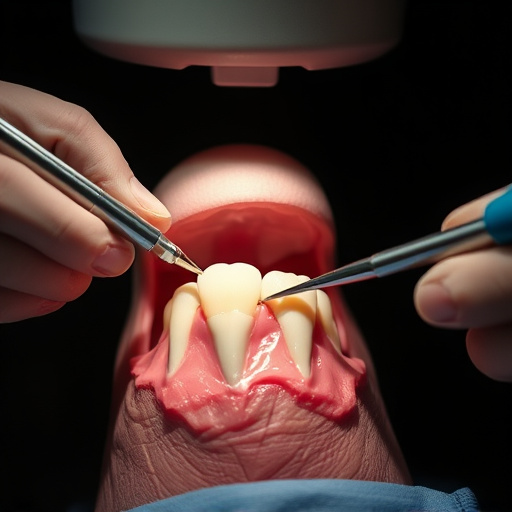Laser dentistry treatment revolutionizes root canal procedures and crown lengthening by offering precise, comfortable alternatives to traditional methods. Using concentrated light beams, it shapes and cleans dental structures, removes infected tissue in root canals, and reshapes gum tissues for improved crown placement. This advanced approach provides faster healing, reduced discomfort, and enhanced success rates compared to conventional techniques.
“Revolutionize your dental care with the advanced precision of laser dentistry treatments. This cutting-edge approach offers a less invasive alternative for root canal procedures and crown lengthening, ensuring faster healing and enhanced comfort.
In this article, we explore the benefits of laser technology in these crucial dental tasks. From understanding the fundamentals of laser dentistry for root canals to discovering its advantages in crown lengthening, you’ll gain valuable insights into how this game-changer is transforming dental practices.”
- Understanding Laser Dentistry for Root Canal Treatments
- Benefits of Laser Technology in Crown Lengthening
- The Process and Aftercare of Laser Dental Procedures
Understanding Laser Dentistry for Root Canal Treatments

Laser dentistry treatment has emerged as a revolutionary approach to root canal procedures and crown lengthening, offering patients a more precise and comfortable alternative to traditional methods. This advanced technology utilizes concentrated beams of light to meticulously shape and clean dental structures, making it an effective solution for various oral health issues.
In the context of root canals, laser dentistry enables dentists to remove infected or inflamed tissue from the pulp chamber with remarkable accuracy. The lasers can also sanitize the area, reducing the risk of further infection. Moreover, when combined with crown lengthening procedures, lasers can gently reshape gum tissues, providing more space for crowns during restoration work. This minimally invasive approach not only enhances the success rate of these treatments but also contributes to improved patient comfort and faster healing times compared to conventional techniques, making it a popular choice in cosmetic dentistry.
Benefits of Laser Technology in Crown Lengthening

The integration of laser technology into dental practices has revolutionized various procedures, particularly crown lengthening. Unlike traditional methods that often involve extensive manual work and longer recovery times, laser dentistry treatment offers numerous benefits for this aesthetic and functional procedure. By utilizing precise, high-energy light beams, lasers can effectively remove excess tissue, exposing more of the natural tooth and creating a more aesthetically pleasing smile.
One of the significant advantages is the improved precision it affords. Laser dentistry treatment allows for minimal tissue removal, preserving healthy gum tissues and reducing the risk of post-operative complications, such as infections or sensitivity. This advanced approach also expedites the overall process, making crown lengthening less invasive and more comfortable for patients. Moreover, lasers provide excellent hemostasis, meaning they can help control bleeding during the procedure, contributing to a smoother recovery process, which is especially beneficial for those seeking emergency dental care or who prefer a faster healing time over traditional methods.
The Process and Aftercare of Laser Dental Procedures

The process of laser dentistry treatment for root canal and crown lengthening procedures involves advanced technology to precisely and effectively address dental issues. Using specialized lasers, dentists can carefully remove infected or damaged tissue inside a tooth during a root canal procedure, ensuring a cleaner and healthier environment for healing. For crown lengthening, lasers are employed to gently reshape gums and expose more of the tooth’s natural structure, providing better support for dental crowns or implants.
Aftercare is an essential part of any laser dentistry treatment. Patients can expect minimal discomfort and swelling following the procedure, which typically subsides within a few days. Dentists may recommend over-the-counter pain relievers to manage any temporary sensitivity or mild soreness. It’s crucial to maintain good oral hygiene practices, including gentle brushing and flossing, to prevent infection. Regular check-ups are vital to monitor healing and ensure the success of the treatment, which can open doors to comprehensive dental care solutions like dental implants or address other concerns, such as tooth extractions, more comfortably and efficiently.
Laser dentistry treatment offers innovative solutions for procedures like root canal therapy and crown lengthening, combining precision and minimal invasiveness. By leveraging advanced technology, these non-invasive techniques provide faster healing times, reduced discomfort, and improved aesthetic outcomes compared to traditional methods. Incorporating laser dentistry into dental practices allows professionals to offer patients more efficient and effective care, revolutionizing the way we address oral health issues.
